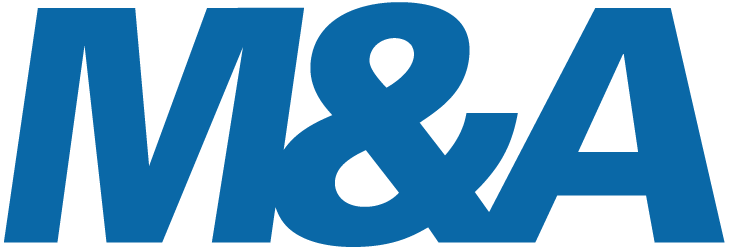Pitch Best Deal 2022: 3G Capital – Hunter Douglas

Name of the deal: 3G Capital acquires majority stake in Hunter Douglas from the Sonnenberg Family
Date announced: 30 December 2021
Date closed: 25 February 2022, Delisting of Hunter Douglas shares will occur on 31 October 2022
Published value: 4.725 billion euros (enterprise value 6.3 billion euros)
Buyer(s): 3G Capital
Target: Hunter Douglas
Seller: Sonnenberg Family and minority shareholders Hunter Douglas
Involved firms and advisors
Involved firms and advisors buy side:
J.P. Morgan, Lazard and Morgan Stanley (M&A Advisory), EY (Tax Advisory), Kirkland & Ellis, Stibbe, HBN Law & Tax, Paul, Weiss, Rifkind, Wharton & Garrison (Legal advisory Corporate M&A)
Involved firms and advisors target:
Rabobank (M&A Advisory), EY (Financial Due Diligence), Loyens & Loeff (Tax Advisory and Legal Advisory Corporate M&A), Spigt Dutch Caribbean, CorporateWise, DLA Piper (Legal Advisory Corporate M&A)
Involved firms and advisors sell side:
Credit Suisse, ING (M&A Advisory), Loyens & Loeff (Tax Advisory and Legal Advisory Corporate M&A), De Brauw Blackstone Westbroek, White & Case, Burggraaf & Hoekstra (Legal Advisory Corporate M&A)
Pitch
Brief description deal / Deal outline
On 30 December 2021, Hunter Douglas and 3G Capital announced that Ralph Sonnenberg, the controlling shareholder of Hunter Douglas, entered into a definitive agreement to transfer a controlling interest in the Company to 3G Capital based on a value of €175 per Ordinary Share. The Ordinary Share Price represents a 73% premium to Hunter Douglas’ closing ordinary share price on December 30, 2021 of €101.40 and a 64% premium to Hunter Douglas’ all-time high closing ordinary share price of €106.40. The Sonnenberg Family will continue to hold a 25% interest in Hunter Douglas, pro forma for the new capital structure. 3G Capital and Ralph Sonnenberg facilitate and secure a cash exit for all minority shareholders based on the same price per Ordinary Share. On 25 February 2022, 3G Capital completed the acquisition of a controlling interest in Hunter Douglas. Delisting shall occur on 31 October 2022 and, accordingly, the last trading day of the Shares shall be 28 October 2022. Following the delisting, the statutory squeeze out proceedingswill be completed.
Why should this deal win the Award for Best Deal 2022?
As background, in 2021 the investment vehicle of Ralph Sonnenberg, Bergson Beheer, launched a public offer on the outstanding shares held by minority shareholders for €64 per share (cum dividend), which was subsequently raised to €82 per share (cum dividend), with the support from the Independent Directors. In June 2021 it was announced that after settlement, Bergson Beheer would hold 30,559,366 common shares, representing 87.84% of the common shares, and 34,242,517 preferred shares, together representing 93.59% of the total capital of Hunter Douglas. By the end of that year, on 30 December 2021, the transaction with 3G Capital was announced at a price of €175 per share. Ralph Sonnenberg was able to construct a very attractive deal whilst offering minority shareholders a liquidity event (i.e. an opportunity to exit their investment). Given the illiquidity of the shares, with very low daily volumes trading on average daily, the liquidity event enabled minority shareholders to sell their shares at attractive terms. In a private setting, Hunter Douglas is able to continue to operate and grow without the limitations and requirements correlated to a publicly listed setting, with very limited free float.
Hunter Douglas is a true multinational with Dutch roots, active in 100 countries and employing over 23,500 employees, worldwide. Its products are common to many households, and include the world-famous Luxaflex window blinds systems.
For all parties involved, this was a very significant transaction. For Mr. Sonnenberg, who at the time of the transaction held over 93% of the shares in Hunter Douglas and also served as Hunter Douglas' CEO, it marked the sale of a controlling interest in the family business which was founded by Mr. Sonnenberg's father over 100 years ago, and has been led by the Sonnenberg family over three generations. Mr. Sonnenberg's son, David Sonnenberg, assumed the role of Executive Chairman of the Hunter Douglas enterprise. For 3G Capital, a global investment firm with a reputation to be very selective about its investments, and whose portfolio includes well-known global brands including Burger King, Anheuser-Busch InBev and Kraft Heinz, the acquisition constituted the first time it invested in a multinational with a strong Dutch history and presence. The transaction coincided with the global COVID-19 pandemic, during which many consumers found themselves working from home and making increased investments in home improvement, including window dressings. This had a significant impact on Hunter Douglas' business and value, which resulted in a price per share of EUR 175, representing a premium of 73%.
The transaction itself was unique for a number of reasons. Hunter Douglas is a rare example of a listed Curacao incorporated entity. This, combined with its listing at Euronext Amsterdam, resulted in a complex mix of applicable laws and regulations. Due to these and other factors, the transaction called for a unique transaction structure, never before implemented in the US, Curacao or the Netherlands. In addition, given Hunter Douglas' global footprint, the transaction was subject various local law considerations, including regulatory clearances and financial regulatory approvals.
The deal is evidence of great and authentic leadership, including development of a strong, progressive culture and wider contribution to all stakeholders. The combination of the block trade, the asset sale and the subsequent statutory squeeze out proceedings (in accordance with Curacao law), make this a landmark complex international transaction.
It is a high-profile transaction that should win because of the interplay of Hunter Douglas’ company characteristics, privatization rules (listed company), bidder landscape, transaction process and cross-border complexity.
3G Capital will strengthen the brands of Hunter Douglas and will further its expansion. The transaction values the ordinary shares of Hunter Douglas at EUR 175 per Ordinary Share, implying an enterprise value of approximately USD 7.1 billion.
Deal rationale:
3G Capital has deep experience building consumer branded businesses over a long-term horizon, and invest in Hunter Douglas to continue to strengthen its brands and further its expansion. Hunter Douglas’ strong market position is the product of its specialized expertise built over the past century. 3G is committed to preserving this expertise by empowering and supporting Hunter Douglas’ leadership and partnering closely with Hunter Douglas’ exceptional team of founders and entrepreneurial managers and unrivaled network of dealers and fabricators. As a private enterprise, Hunter Douglas will have the opportunity to advance and expand its business while preserving the family-led culture and strong relationships with stakeholders which have been core to its success. 3G Capital and Hunter Douglas share a strong belief in durable value creation through operational excellence, entrepreneurship and a culture of meritocracy.
Hunter Douglas coming under private ownership will have various benefits, including increasing its ability to quickly and effectively facilitate the implementation of the its strategy or strategic decisions and respond to rapidly changing markets. Furthermore, as a private enterprise, it enables Hunter Douglas to achieve an efficient capital structure, and allows for reduced costs as a result of no longer having to comply with continued obligations as a listed company
What is the impact of this deal for the company?
The companies share a deep and -long interest in doing business in a way that benefits all stakeholders, including customers, employees, shareholders, business partners, suppliers, and the communities in which they are present. 3G Capital has deep experience building consumer branded businesses over a long-term horizon, and will be investing in Hunter Douglas to continue to strengthen its brands and further its expansion. Hunter Douglas' strong market position is the product of its specialized expertise built over the past century by Hunter Douglas' exceptional team of founders and entrepreneurial managers and unrivaled network of dealers and fabricators.
Following the transaction, Hunter Douglas will no longer be listed as a public company at Euronext Amsterdam, but will rather continue its operations as a privately-held enterprise, whilst preserving the family-led culture and strong relationships with stakeholders which have been core to its success.
What is the impact of this deal for the direct stakeholders?
- Attractive valuation for the selling shareholders
- Offers liquidity/exit moment for the minority shareholders- No (direct) impact on the operations and on management, other employees, customers, suppliers, etc.
- Ralph Sonnenberg received €175 per common share and €0.24 per preferred share The statutory squeeze out proceedings allowed minority shareholders to benefit from the same cash price for their ordinary shares as the controlling shareholder and a better cash price for their preferred shares than the controlling shareholder.
- For 3G Capital, a global investment firm with a reputation to be very selective about its investments, and whose portfolio includes well-known global brands including Burger King, Anheuser-Busch InBev and Kraft Heinz, the acquisition constituted the first time it invested in a multinational with a strong Dutch history and presence.
What is the impact of this deal on society?
Hunter Douglas will have the opportunity to advance and expand its business while preserving the family-led culture and strong relationships with its stakeholders.
As a private company, a delisted Hunter Douglas will have the opportunity to grow and expand its business. An iconic firm, the global market leader in window coverings and a major manufacturer of architectural products with iconic products such as Luxaflex® and Luxalon. Hunter Douglas is the world market leader in window coverings and a major manufacturer of architectural products.
With over 23,500 employees, and active in 100 countries, Hunter Douglas truly is a multi-national with a global impact. Its products are used by consumers, globally. The transaction enables Hunter Douglas to quickly and effectively implement its strategy and strategic decisions and respond to rapidly changing markets.
What was most complex about this deal?
Multi-step approach, whereby Ralph Sonnenberg and 3G Capital first entered into a definitive agreement (the "Block Trade Agreement")for the sale of a controlling interest of 75% in a holding vehicle. Also, Hunter Douglas, Ralph Sonnenberg and 3G Capital and certain of their affiliates have entered into a support agreement in relation to the transaction (the "Support Agreement"). The parties to the Support Agreement agreed that, following consummation of the Block Trade Agreement and completion of an Asset Sale, statutory squeeze out proceedings in accordance with applicable Curacao law and Hunter Douglas' articles of association would be initiated in respect of any remaining shares in Hunter Douglas (the “Buy-Out”). No (minority) shareholders shareholders appeared objecting to the squeeze-out.
This deal involves complex multi-jurisdictional structuring with its Head Office in Rotterdam, the Netherlands. The Group (at closing) comprised 136 companies with 47 manufacturing and 89 assembly operations, being active in more than 100 countries. It was one of the highest profile matters of the past year in the Netherlands, which gained a lot of press attention. A very complex transaction, as it did not only involve many jurisdictions – and thus an abundance of cross-border issues -, but also a publicly listed target, regulatory requirement and a complex deal structure. On top of this, there was quite some time pressure, given the public character of the transaction.









